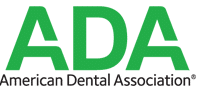Sedation Dentistry
At Central Ohio Periodontics, we offer several sedation options, depending on your procedure and comfort needs. We can help lower any type of dental anxiety you have.
Local Anesthetic
For certain dental procedures, the doctors will need to numb only certain areas in your mouth. In order to do so, medicine is injected into your gum or inner cheek. This medicine is called a local anesthetic.
Lidocaine is the most common local anesthetic used in dentistry, however, there are many others. All types of numbing drugs are combined with other medications to make the numbing last longer. Numbing usually lasts several hours but wears off over time.
Numbing just the area where dental work needs to be performed allows the doctors to perform procedures without pain or discomfort. Because you are still conscious, you can answer prompts and commands quickly and easily. And, because you have not been sedated, you can usually drive yourself home or go back to work immediately after the appointment.
Oral Sedation
Our office offers oral sedation dentistry. Oral sedation dentistry allows us to relieve anxiety without the use of intravenous IV needles or tubes.
About an hour prior to the appointment, you will be asked to take a small pill that will make you drowsy. By the time your companion accompanies you to our office for the appointment, you will be feeling relaxed and calm.
The doctors and our experienced clinical team will complete the dental procedure. During the entire procedure, we will monitor your vital signs to ensure your health and safety. After the treatment is completed, we do require a companion to drive you home.
Intravenous (IV) Conscious Sedation
IV Conscious Sedation is an effective technique for managing moderate to severe dental anxiety. While not as readily available in most dental offices, we believe it is a valuable tool for ensuring a patient’s complete relaxation during a procedure they would not ordinarily have done due to extreme fear.
Prior to the procedure, medication is administered intravenously. Medications administered by IV are more effective than those taken orally because the anesthesiologist can control exactly how much is administered directly into the bloodstream.
During the procedure, your heart rate, blood oxygen levels, blood pressure, and breathing are continuously monitored by an anesthesiologist. For IV Conscious Sedation, you will be awake through the whole procedure, allowing the doctors to talk with you and give you the necessary directions if necessary. However, the medications administered during IV conscious sedation leave patients with amnesia of the procedure, so they will not remember the experience.
What type of sedation is right for you?
During your consultation, the doctors will review your procedure and discuss the best type of sedation options for your health needs and dental concerns.

 Dr. Sakamoto
Dr. Sakamoto
 Dr. Mannava
Dr. Mannava
 Our Team
Our Team
 FIRST VISIT
FIRST VISIT
 PATIENT FORMS
PATIENT FORMS
 DENTAL INSURANCE
DENTAL INSURANCE
 POST-OP INSTRUCTIONS
POST-OP INSTRUCTIONS





